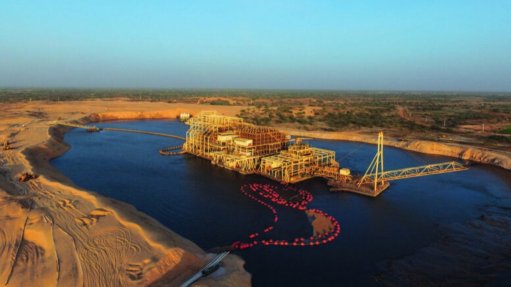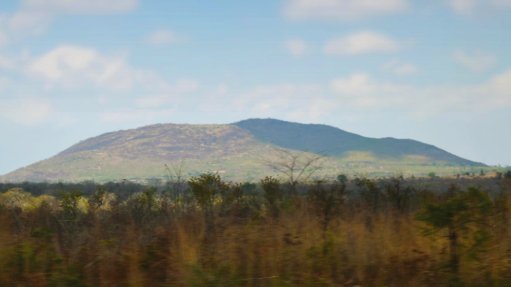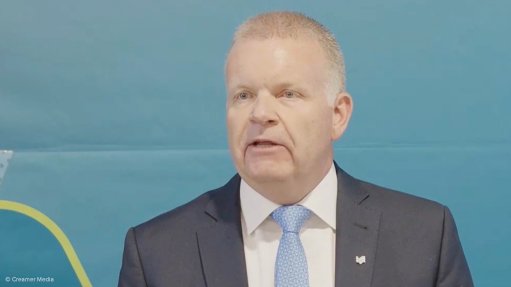Miners must limit environmental impacts - King
PERTH (miningweekly.com) – Australia’s mining and downstream processing companies will need to move to a more sustainable footing in order to benefit from the future demand for critical minerals, federal Resources Minister Madeleine King said on Monday.
“We know the road to net zero runs through Australia’s resources sector. But we must do more to help Australians understand that the resources sector provides significant economic benefits to our country, as well as opportunities to share the benefits with First Nations communities and regional communities,” King said in a speech to the World Mining Congress in Brisbane.
“The sector must show that it is looking to reduce and minimise harmful impacts on the environment. Without ongoing efforts to ensure social licence, we, the global mining, minerals and materials communities, will struggle to win investor backing for new projects.
“These efforts are vital to ensure Australia reaps the rewards of being the world’s supplier of resources for the energy transition. The opportunity is immense,” King said.
“If we can ramp up mineral production to enable rapid decarbonisation, we could potentially grow the world economy by A$62-trillion by 2070. But this is contingent on having the right investment and policy approaches in place.”
King said on Monday that public expectations demanded that the sector operated within "sensible constraints" and that the sector owed it to future generations to "tread lightly on the earth".
“One of the biggest opportunities for emissions reduction in the energy sector is carbon capture and storage (CCS). There are now around 35 commercial capture facilities in operation globally, with a total annual capture capacity of 45-million tonnes of carbon dioxide (CO2),” she said.
“The Sleipner project in Norway, the world’s first commercial CO2 storage project, has been storing one-million tonnes of CO2 per year, deep below the North Sea, since 1996.
“The world’s largest CCS project is the Gorgon joint venture at Barrow Island in Western Australia, with a planned annual storage of two-million tonnes starting in August 2019. So far, eight-million tonnes of CO2 have been stored in deep onshore sandstone reservoirs off Barrow Island.
“While there have been challenges and under-performance with some of these projects, the International Energy Agency (IEA) and other global organisations are clear we will need more permanent carbon storage projects, not less,” King said.
“With the world on the cusp of an energy transformation, these are exciting times for the global mining sector. The opportunities ahead will be significant. Fully realising them, however, will involve the world’s mining companies embracing new responsibilities and obligations.
“These include a commitment to enhancing our environmental, social and governance credentials and serious pledges to reduce carbon emissions at source and downstream.
You as an industry are responsible in the first instance for negotiating the challenges and securing the opportunities of the transition.”
The Minister told delegates that the shift to clean energy systems would be mineral dependent.
“An onshore wind power plant, for instance, requires nine times more mineral resources than a gas-fired power plant. Each new megawatt of solar power requires between 35 t to 45 t of steel. And steel needs iron-ore and coal for the moment. Though exciting developments may eventually see us producing green steel using renewable hydrogen.”
King pointed to data from the IEA which has estimated that mineral requirements for clean energy technologies would need to quadruple by 2040 to keep global temperature increase below 2 oC.
“More mining is required to meet this urgent demand for clean energy technologies.
Recent analysis by the IEA suggests the world will need around 50 new lithium mines, 60 new nickel mines and 17 new cobalt mines to meet net carbon emissions goals by 2030.
Right now, there are 26 lithium mines, 186 nickel mines and 89 cobalt mines operating globally.
“That means producing more raw materials for renewables and clean energy technologies faster than ever,” King said.
“We are the world’s number one producer of lithium and a top-five producer of cobalt and rare earths. All are essential for electric vehicle (EV) batteries and the magnets that comprise EV motors.
“And with 80% of Australia considered under-explored by our national geological survey organisation, Geoscience Australia, there are abundant opportunities for new mineral discoveries,” the Minister said.
“Our world-class scientists and geologists are opening new geological frontiers and developing a pipeline of exciting new mining projects. Australia must do everything it can as a nation to grab these opportunities.”
Article Enquiry
Email Article
Save Article
Feedback
To advertise email advertising@creamermedia.co.za or click here
Announcements
What's On
Subscribe to improve your user experience...
Option 1 (equivalent of R125 a month):
Receive a weekly copy of Creamer Media's Engineering News & Mining Weekly magazine
(print copy for those in South Africa and e-magazine for those outside of South Africa)
Receive daily email newsletters
Access to full search results
Access archive of magazine back copies
Access to Projects in Progress
Access to ONE Research Report of your choice in PDF format
Option 2 (equivalent of R375 a month):
All benefits from Option 1
PLUS
Access to Creamer Media's Research Channel Africa for ALL Research Reports, in PDF format, on various industrial and mining sectors
including Electricity; Water; Energy Transition; Hydrogen; Roads, Rail and Ports; Coal; Gold; Platinum; Battery Metals; etc.
Already a subscriber?
Forgotten your password?
Receive weekly copy of Creamer Media's Engineering News & Mining Weekly magazine (print copy for those in South Africa and e-magazine for those outside of South Africa)
➕
Recieve daily email newsletters
➕
Access to full search results
➕
Access archive of magazine back copies
➕
Access to Projects in Progress
➕
Access to ONE Research Report of your choice in PDF format
RESEARCH CHANNEL AFRICA
R4500 (equivalent of R375 a month)
SUBSCRIBEAll benefits from Option 1
➕
Access to Creamer Media's Research Channel Africa for ALL Research Reports on various industrial and mining sectors, in PDF format, including on:
Electricity
➕
Water
➕
Energy Transition
➕
Hydrogen
➕
Roads, Rail and Ports
➕
Coal
➕
Gold
➕
Platinum
➕
Battery Metals
➕
etc.
Receive all benefits from Option 1 or Option 2 delivered to numerous people at your company
➕
Multiple User names and Passwords for simultaneous log-ins
➕
Intranet integration access to all in your organisation


















